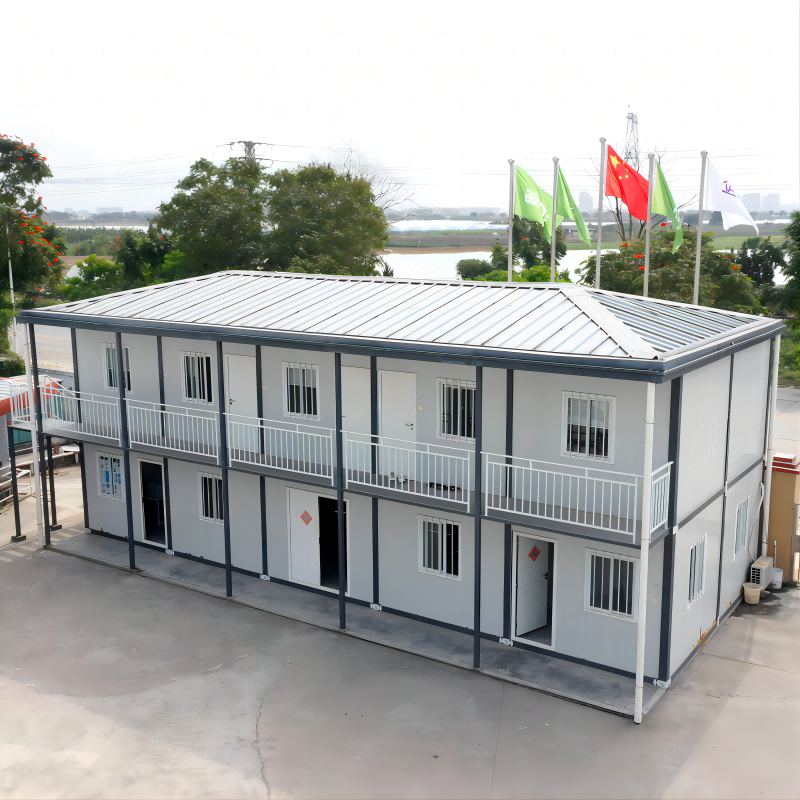As prefab container houses gain popularity as a cost-effective and sustainable housing solution, it is important to be aware of certain considerations when using them. In this article, we will highlight key points to keep in mind during the usage process of prefab container houses.
Foundation and Stability:
When setting up a prefab container house, it is vital to ensure a solid foundation and stability for the structure. The containers must be placed on level ground, ideally on concrete or compacted gravel. This helps to prevent issues such as uneven settling or shifting of the containers over time.
Insulation and Ventilation:
Proper insulation and ventilation are crucial for maintaining a comfortable living environment inside prefab container houses. Insulation materials can be added to the walls, floors, and ceilings to minimize heat transfer and temperature fluctuations. Adequate ventilation, including windows, vents, and fans, helps to regulate airflow and prevent issues like condensation and mold growth.
Electrical and Plumbing Systems:
When installing electrical and plumbing systems in prefab container houses, it is essential to hire certified professionals to ensure safety and compliance with building codes. These systems should be designed and implemented according to the specific needs and requirements of the house, considering factors such as capacity, load distribution, and energy efficiency.
Proper Sealing and Weatherproofing:
To enhance the durability and weather resistance of prefab container houses, it is necessary to properly seal all joints, gaps, and openings. This helps to prevent water infiltration, drafts, and pests. Regular inspections and maintenance should be carried out to identify and address any areas that require resealing or weatherproofing.
Structural Modifications and Load-Bearing Capacity:
Although prefab container houses offer flexibility in design and customization, it is essential to consider the structural integrity and load-bearing capacity of the containers when making modifications. Consultation with a structural engineer or an experienced professional is recommended to ensure that any alterations or additional structures do not compromise the safety and stability of the house.
Permits and Regulations:
Before setting up a prefab container house, it is crucial to research and comply with local building codes, zoning regulations, and permit requirements. Different jurisdictions have varying rules regarding the use of prefab container houses, including restrictions on land use and occupancy. Failure to comply with these regulations can lead to legal issues and potential fines.
Maintenance and Repairs:
Regular maintenance is essential for the longevity and functionality of prefab container houses. This includes inspecting and repairing any damages to the structure, roof, walls, and plumbing or electrical systems. Prompt action should be taken to address issues such as leaks, corrosion, or wear and tear to avoid costly repairs in the future.
While prefab container houses offer many benefits, it is important to consider and address certain factors during their usage. By ensuring a solid foundation, proper insulation and ventilation, compliance with electrical and plumbing standards, adequate weatherproofing, careful structural modifications, adherence to regulations, and regular maintenance, prefab container houses can provide a safe, comfortable, and sustainable living solution.
Post time: Jun-30-2023







